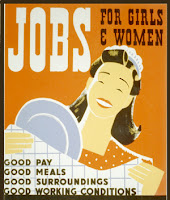 I love it when all things converge. New York Times columnist and writing teacher extraordinaire Verlyn Klinkenborg recently wrote a rather poignant reflection on young women writers and authority. Tonight I’m headed to the Girls Write Now friendraiser. And this week the Woodhull Institute has online modules up on “Your Authentic Voice and Advocacy” over at the Dove Real Women, Real Success Stories site. To honor said convergences, I’m posting a long expert from the dear ole Verlyn here:
I love it when all things converge. New York Times columnist and writing teacher extraordinaire Verlyn Klinkenborg recently wrote a rather poignant reflection on young women writers and authority. Tonight I’m headed to the Girls Write Now friendraiser. And this week the Woodhull Institute has online modules up on “Your Authentic Voice and Advocacy” over at the Dove Real Women, Real Success Stories site. To honor said convergences, I’m posting a long expert from the dear ole Verlyn here:
I’ve often noticed a habit of polite self-negation among my female students, a self-deprecatory way of talking that is meant, I suppose, to help create a sense of shared space, a shared social connection. It sounds like the language of constant apology, and the form I often hear is the sentence that begins, “My problem is …â€
Even though this way of talking is conventional, and perhaps socially placating, it has a way of defining a young writer — a young woman — in negative terms, as if she were basically incapable and always giving offense. You simply cannot pretend that the words you use about yourself have no meaning. Why not, I asked, be as smart and perceptive as you really are? Why not accept what you’re capable of? Why not believe that what you notice matters?
Another young woman at the table asked — this is a bald translation — won’t that make us seem too tough, too masculine? I could see the subtext in her face: who will love us if we’re like that? I’ve heard other young women, with more experience, ask this question in a way that means, Won’t the world punish us for being too sure of ourselves?….
These are poignant questions, and they always give me pause, because they allow me to see, as nothing else does, the cultural frame these young women have grown up in. I can hear them questioning the very nature of their perceptions, doubting the evidence of their senses, distrusting the clarity of their thoughts….I’m always struck by how well fitted these young women are to be writers, if only there weren’t also something within them saying, Who cares what you notice? Who authorized you? Don’t you owe someone an apology?….But whenever I see this transformation — a young woman suddenly understanding the power of her perceptions, ready to look at the world unapologetically — I realize how much has been lost because of the culture of polite, self-negating silence in which they were raised.
(Thank you, Lori, for the heads up.)









